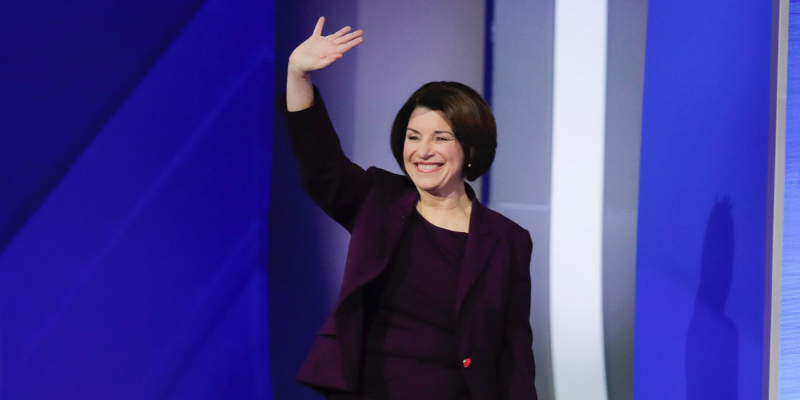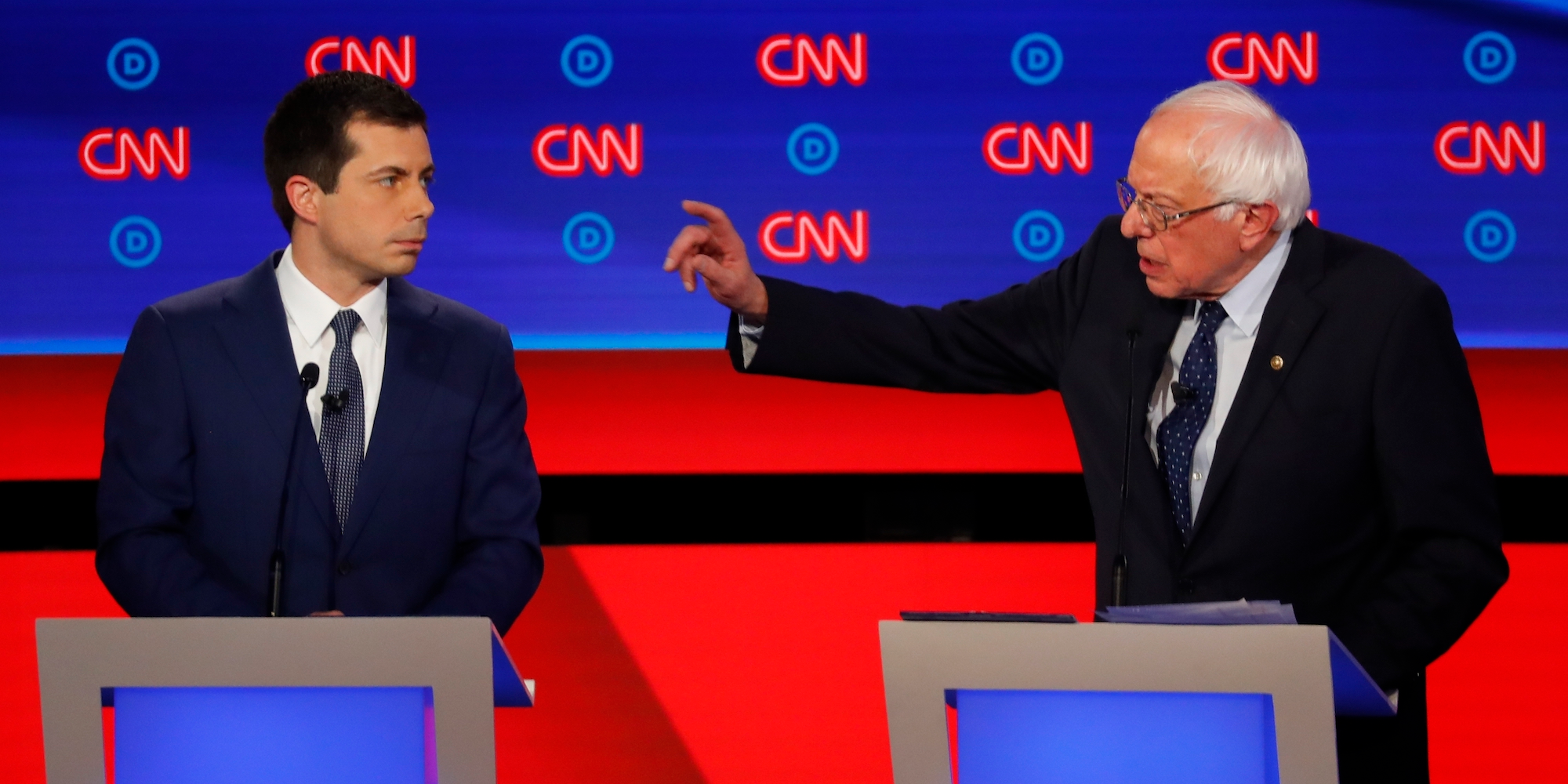- Sen. Bernie Sanders of Vermont on Tuesday night won the Democratic primary in New Hampshire, securing about a quarter of the vote to edge out Mayor Pete Buttigieg of South Bend, Indiana.
- The victory establishes Sanders as the Democratic frontrunner, with the veteran democratic socialist having lost narrowly in Iowa, and won Tuesday’s vote.
- Financially he has been outgunned only by the billionaires Tom Steyer and Michael Bloomberg.
- But a closer look at Tuesday night’s results shows that things aren’t over for Democratic moderates, and if they coalesce around one candidate, such as Buttigieg, their wing of the party could still win the nomination.
- Moderates together secured a majority of Tuesday’s vote, significantly more than the progressives Sanders and Sen. Elizabeth Warren of Massachusetts.
- Visit Business Insider’s homepage for more stories.
With his victory in Tuesday night’s Democratic primary in New Hampshire, the progressive maverick Sen. Bernie Sanders of Vermont became the frontrunner in the race for the Democratic presidential nomination.
The victory followed his narrow and disputed loss in the chaotic Iowa caucuses last week, and figures at the end of January showed him outperforming every other candidate apart from the billionaires Tom Steyer and Michael Bloomberg in the fundraising stakes.
Sanders hailed the results as “the beginning of the end” for President Donald Trump in a victory speech Tuesday night.
For supporters it means their long-cherished dream of a progressive candidate pledging genuine radical reform moves closer to reality – and perhaps the beginning of the end for the centrists they see as skewing the 2016 contest in favor of Hillary Clinton and hastening the rise of Trump.
They believe the momentum is behind them to clinch the nomination at July's Democratic convention in Milwaukee.
But there is a different way to look at Tuesday night's result, one likely to concern the Sanders campaign and give hope to those convinced a candidate from the party's moderate wing - like Sen. Amy Klobuchar of Minnesota, former Vice President Joe Biden, or former Mayor Pete Buttigieg of South Bend, Indiana - is best placed to defeat Trump in November.
With more than 90% of precincts reporting on Wednesday, Sanders had secured 25.7% of the vote, edging Buttigieg by about 1 1/2 percentage points.
The author and academic Tom Nichols earlier pointed out that while the two candidates in the field considered most liberal, Sanders and Sen. Elizabeth Warren of Massachusetts, shared about 35% of the vote, the top three centrist candidates together had 53%.
So even if Sanders had further consolidated his hold over the progressive wing of the party, it would still have been less than the votes won by moderates.
The progressive lane in NH:
Bernie + Liz = 35%
Moderate lane:
Pete+ Amy+Joe = 53%
Just sayin'.
— Tom Nichols (@RadioFreeTom) February 12, 2020
Unlike in 2016, when centrists quickly coalesced around Clinton as their candidate, lifting her to victory in the two first primaries, this time the moderate vote is split. This has been a vital part of Sanders' rise.
But in an unpredictable primary season, it is a situation that could change quickly.
Buttigieg + Klobuchar + Biden =
52%Sanders + Warren + Yang =
38%— David Catanese (@davecatanese) February 12, 2020
Biden, who was once the clear frontrunner and who many still see as the party's best chance of beating Trump, has seen his campaign stagger to two crushing defeats. The campaign is also struggling to raise money.
Further bad results could compel the onetime favorite to step out soon.
Klobuchar's campaign is gathering momentum, but is it too late to mount a serious challenge? The senator from Minnesota could soon decide to leave the field open to another moderate and exit the race.

Bloomberg is rising in the polls and could eclipse Buttigieg as the leading Democratic moderate - with his fundraising clout possibly enough to persuade other centrist contenders their time is up.
Or Buttigieg could shrug off the other challengers and emerge as the clear frontrunner.
A December 2018 poll by Gallup gives real hope for those backing a moderate for the nomination.
It found that 54% of Democrats surveyed said they wanted their party to move toward the center, compared with 41% who said they did not.
More recently, a November New York Times/Siena College poll found that 55% of Democratic voters in the battleground states likely to decide the election wanted a candidate who was more moderate than other Democrats.
So if the moderate vote unifies around one candidate, the path to victory is clear.
But if the split between moderates isn't healed and a frontrunner does not emerge, Sanders' campaign will most likely continue to build momentum.

